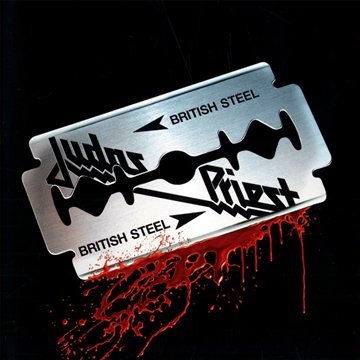By Navjot Kaur
Venturing into the turbulent realm of Celtic meets traditional black metal (streaked with essential melody) is Primordial. None too surprising, as the group’s re-released debut album, Imrama, translates roughly into “voyage” or “rowings about.” In a country like Ireland, where English has become the mainstream language, the band asserts its roots by sticking to Irish lyrics, a steely individualism that is equally palpable in the music they’ve continued to churn out for the last 23 years. Steering into the present, the band put out a twelve-track re-release of their debut album, Imrama, early this year on Metal Blade Records.
The album kicks off on a melodic note with “Full Arsa.” The opening is straight-up acoustics, which slowly but surely ushers in distorted, heavy sound, melodic angelic vocals au background, and tons of double-bass. By the two-minute mark, both the acoustic and the electric parts run parallel to one another, amplifying an intensity that will only build for the rest of the 12-track journey into Celtic hell. The slow minimalization of noise towards the end of the track is reminiscent of Opeth’s “Bleak,” off of Blackwater Park.
Meanwhile, you can only imagine the quadriceps of drummer Derek MacAmlaigh’s disintegrating, cell-by-cell, to produce the sea of fiery beats that’s topped off with dissonant riffs– and a clear voice that preaches the words of Satan Himself – to the blaspheming choir that is the unsuspecting Imrama listener. In tracks like “Infernal Summer,” the instrumentals envelop and conduct the listener into the chaos of explosive sound. Using pockets of folk metal riffs to transition from the heavier to melodic parts, we are fully immersed in the chaos of constant sonic phase shifts, which draw us further into the music. The most ruthless such transitions are followed by the modest entry of screeching, anguished vocals, reminiscent of Alan Dubin (Khanate-fame). Vocalist Alan Averill varies it up, so that the screeching vox is well-balanced by the an operatic voice that drops in towards the end of “Infernal Flame,” to the haunting, nearly inaudible whispers in “To the Ends of the Earth.” Thus, amidst a track that’s fundamentally depressive black metal, you get your folk and melodic gears in motion.
Perhaps most surprising to me was “Beneath a Bronze Sky,” which kicks off with primitive drum noises, having made me feel as though I was about to jump right into an old Sepultura track. So, when the cheery Celtic, flute-like instruments came in, I found myself all the more confused, if not totally chilled out from the sensory-degrading, momentous despair caused by the eight tracks that preceded it. You can say I was kept on my toes when the next song started up: “Among the Lazarae.” which brought to mind what we’d be likely to hear come the morning post-apocalypse. Total, complete isolation, with nothing but the echoes of death and decay to fill the silence.
The album is not without its weaknesses, as it has the tendency to get pretty repetitive: building momentum in each song with an explosive, heavy, and often melodic intro, which sadly then repeats many times over for the rest of the song. Nonetheless, there is something to be said about the band’s union of melody and dissonance in each track. Ultimately, the album is refreshing for what it dishes out: 12 tracks of complete auditory turbulence, with tracks that transition from slow phases to skin-seething, crushing black metal disarray that’s sure to stick (in the grimmest possible way).
(Metal Blade)


